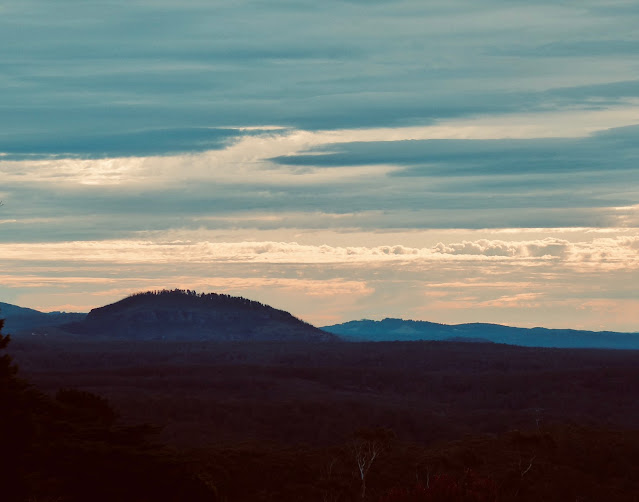Our relationship with the world leads us constantly back to what was already known, but never before by us understood, circling and searching our own origins. (p. 448)
So says Iain McGilchrist in his extraordinary book The Master and His Emissary: The Divided Brain and the Making of the Western World (2009/2019).
I’m not sure that I have ever finished reading a book only to immediately want to read it again, but that is what happened with this one. I have Rima Staines to thank for the discovery. Both she and Ben Patrick Holden mention McGilchrist in their rich, nourishing conversation, ‘Reaching for the Otherworld’ (which is lengthy, but so worth watching in full). I also enjoyed watching Iain McGilchrist and Caroline Ross in conversation.
I initially read The Divided Brain and the Search for Meaning: Why Are We So Unhappy? (2012) and Ways of Attending: How Our Divided Brain Constructs the World (2019), which provide useful, though extremely brief, summaries of McGilchrist’s earlier work, and, wonderfully, I sensed my inner world expanding and glowing with insight and realisation. The Master and His Emissary has only added to that sensation of the unearthing of something profound. The thesis of the book—that the right and left hemispheres of the brain perceive and understand the world in different and conflicting, though both necessary, ways—in itself is compelling, but in McGilchrist’s overall philosophical vision I have begun to find explanations for problems I’ve been troubled by for years.
With all the focus on the brain, mind and consciousness, for balance I also decided to read Stephen Harrod Buhner’s The Secret Teachings of Plants: The Intelligence of the Heart in the Direct Perception of Nature (2004), from which I have learnt much (despite being irritated by the repetitive way the ideas were presented). Though quite a different book to McGilchrist’s, there were some intriguing commonalities which, in time, I want to explore and tease out, to bring heart and mind together.
McGilchrist believes that ‘our brains not only dictate the shape of the experience we have of the world, but are likely themselves to reflect, in their structure and functioning, the nature of the universe in which they have come about’. (p. 460) So it is highly significant, not just that the brain is divided into two hemispheres by the corpus callosum, but also that it is asymmetrical. And what matters is not what each hemisphere does, but how they do it. Briefly,
the right hemisphere tends to ground experience; the left hemisphere then works on it to clarify, ‘unpack’ and generally render the experience explicit; and the right hemisphere finally reintegrates what the left hemisphere has produced with its own understanding, the explicit now receding, to produce a new, now enriched, whole. (p. xxiv)
The right hemisphere, as the title of the book suggests, is the master (experiencing the world directly), while the left hemisphere is the trusted emissary (a ‘staging post’ for the processing of experience), working in service to something ultimately beyond its comprehension. However, at certain key points in history, and never more so than now, the left hemisphere has taken a more dominant role, usurping the master’s position. Thus, while ‘[t]he right hemisphere’s view is inclusive, ‘both/and,’ synthetic, integrative; [realising] the need for both’, conversely, ‘[t]he left hemisphere’s view is exclusive, ‘either/or,’ analytic and fragmentary – but, crucially, unaware of what it is missing. It therefore thinks it can go it alone’. (p. xxiv)
If we have two different modes of attending to and understanding the world, and an asymmetry in the way those modes, ideally, interact, this is not only significant at the individual level, but also culturally. The over-dominance of the left hemisphere (which, disturbingly, was able to begin reifying and externalising its own point of view via the industrial revolution) explains much about the culture we currently inhabit—its mechanistic mythos, its technologies and bureaucracies, it’s short-sightedness, and the confusion and alienation of humans disconnected from the fundamental unity of body and soul, from the embodied knowledge of traditional cultures, and the natural world.
McGilchrist lays out his thesis in the most fascinating way, by looking for patterns in the neuroscience, as well as in philosophy (particularly the phenomenologists), the cultural evolutions from Ancient Greece to now, and poetry and art. The book is both detailed and broad in its outlook, utilising the skills of both hemispheres.
For me it seems momentous. I recognise the model of mind and consciousness that is described, and there is a spiritual element to the work that unites everything. So, I’m going to give myself time to absorb the transformative implications, taking the knowledge that the left hemisphere has afforded me, and feeding it back towards the holistic, intuitive and implicit understanding of the right hemisphere. I’m going in search of heart-mind.
McGilchrist says:
What ultimately unites the three realms of escape from the left hemisphere’s world which it has attacked in our time – the body, the spirit and art – is that they are all vehicles of love. Perhaps the commonest experience of a clearly transcendent power in most people’s lives is the power of eros, but they may also experience love through art or through spirituality. Ultimately, these elements are aspects of the same phenomenon: for love is the attractive power of the Other, which the right hemisphere experiences, but which the left hemisphere does not understand and sees as an impediment to its authority.
Through these assaults of the left hemisphere on the body, spirituality and art, essentially mocking, discounting or dismantling what it does not understand and cannot use, we are at risk of becoming trapped in the I–it world, with all the exits through which we might rediscover the I–thou world being progressively blocked off. (p. 445)
Let’s hope we can escape from the left hemisphere’s trap by navigating reality’s roundness, going full circle, back to the animate ground of being that the right hemisphere presences to us.

